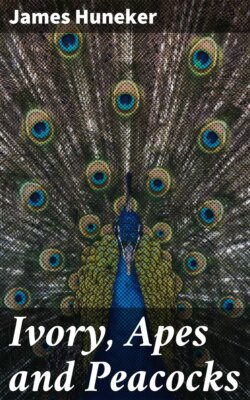Читать книгу Ivory, Apes and Peacocks - James Huneker - Страница 15
На сайте Литреса книга снята с продажи.
II
ОглавлениеThanks to the Count Melchoir de Vogüé, who introduced Tolstoy to the French in Le Roman Russe (containing studies of Pushkin, Gogol, Turgenieff, Dostoïevsky) literary Paris was for a time saturated in Russian mysticism, and what the clear-headed Alphonse Daudet called "Russian pity." It was Count de Vogüé, member of the Academy and Neo-Catholic (as the group headed by Ernest Lavisse elected to style itself), who compressed all Tolstoy in an epigram as having ("the mind of an English chemist in the soul of a Hindoo Buddhist") On dirait l'esprit d'un chimiste anglais dans l'âme d'un buddhiste hindou.
The modulation of a soul, at first stagnant, then plunged into the gulf of hopelessness, and at last catching a glimpse of light, is most clearly expressed by Leo Nikolaievitch in his Resurrection. That by throwing yourself again into the mire you may atone for early transgressions—the muddy sins of your youth—is one of those deadly ideas born in the crazed brain of an East Indian jungle-haunting fanatic. It possibly grew out of the barbarous custom of blood sacrifices. Waiving the tales told of his insincerity by Frau Anna Seuron, we know that Tolstoy wrestled with the five thousand devils of doubt and despair, and found light, his light, in a most peculiar fashion. But he is often the victim of his own illusions. That, Vogüé, a great admirer, pointed out some years ago. Turgenieff understood Tolstoy; so did Dostoïevsky, and so does latterly the novelist Dmitri Merejkowski.
Turgenieff's appeal to Tolstoy is become historic, and all the more pathetic because written on the eve of his death.
